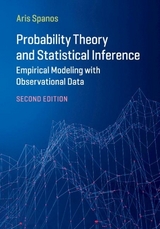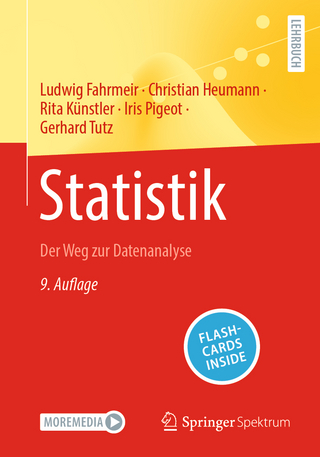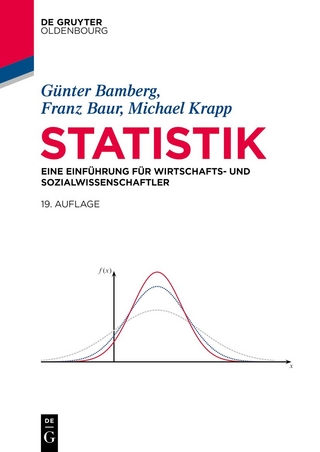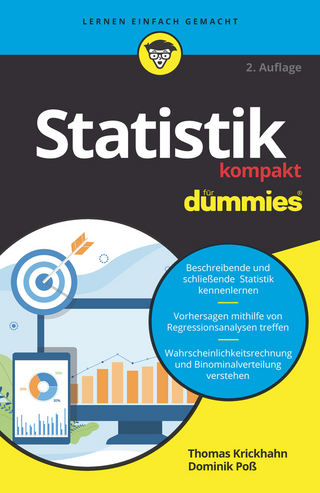
Probability Theory and Statistical Inference
Econometric Modeling with Observational Data
Seiten
1999
Cambridge University Press (Verlag)
978-0-521-41354-1 (ISBN)
Cambridge University Press (Verlag)
978-0-521-41354-1 (ISBN)
- Titel erscheint in neuer Auflage
- Artikel merken
Zu diesem Artikel existiert eine Nachauflage
This major textbook is intended for students taking introductory courses in Probability Theory and Statistical Inference. The text is extremely student-friendly, with pathways designed for semester usage, and although aimed primarily at students of econometrics and economics, will have considerable utility for courses in all disciplines using observational data.
This major textbook from a distinguished econometrician is intended for students taking introductory courses in probability theory and statistical inference. No prior knowledge other than a basic familiarity with descriptive statistics is assumed. The primary objective of this book is to establish the framework for the empirical modelling of observational (non-experimental) data. This framework known as 'Probabilistic Reduction' is formulated with a view to accommodating the peculiarities of observational (as opposed to experimental) data in a unifying and logically coherent way. Probability Theory and Statistical Inference differs from traditional textbooks in so far as it emphasizes concepts, ideas, notions and procedures which are appropriate for modelling observational data. Aimed at students at second-year undergraduate level and above studying econometrics and economics, this textbook will also be useful for students in other disciplines which make extensive use of observational data, including finance, biology, sociology and psychology and climatology.
This major textbook from a distinguished econometrician is intended for students taking introductory courses in probability theory and statistical inference. No prior knowledge other than a basic familiarity with descriptive statistics is assumed. The primary objective of this book is to establish the framework for the empirical modelling of observational (non-experimental) data. This framework known as 'Probabilistic Reduction' is formulated with a view to accommodating the peculiarities of observational (as opposed to experimental) data in a unifying and logically coherent way. Probability Theory and Statistical Inference differs from traditional textbooks in so far as it emphasizes concepts, ideas, notions and procedures which are appropriate for modelling observational data. Aimed at students at second-year undergraduate level and above studying econometrics and economics, this textbook will also be useful for students in other disciplines which make extensive use of observational data, including finance, biology, sociology and psychology and climatology.
Preface; 1. An introduction to empirical modelling; 2. Probability theory: a modelling framework; 3. The notion of a probability model; 4. The notion of a random sample; 5. Theoretical concepts and real data; 6. The notion of a non-random sample; 7. Regression and related notions; 8. Stochastic processes; 9. Limit theorems; 10. From probability theory to statistical inference; 11. An introduction to statistical inference; 12. Estimation I: properties of estimators; 13. Estimation II: methods of estimation; 14. Hypothesis testing; 15. Misspecification testing; References; Index.
| Erscheint lt. Verlag | 2.9.1999 |
|---|---|
| Zusatzinfo | 136 Tables, unspecified |
| Verlagsort | Cambridge |
| Sprache | englisch |
| Maße | 180 x 256 mm |
| Gewicht | 1790 g |
| Themenwelt | Mathematik / Informatik ► Mathematik ► Statistik |
| Mathematik / Informatik ► Mathematik ► Wahrscheinlichkeit / Kombinatorik | |
| Wirtschaft ► Volkswirtschaftslehre ► Ökonometrie | |
| ISBN-10 | 0-521-41354-0 / 0521413540 |
| ISBN-13 | 978-0-521-41354-1 / 9780521413541 |
| Zustand | Neuware |
| Haben Sie eine Frage zum Produkt? |
Mehr entdecken
aus dem Bereich
aus dem Bereich
Eine Einführung für Wirtschafts- und Sozialwissenschaftler
Buch | Softcover (2022)
De Gruyter Oldenbourg (Verlag)
29,95 €



